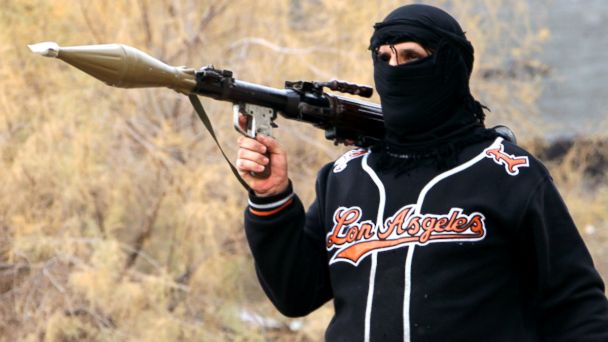US Responds as al Qaeda Overruns Fallujah

AP Photo
A decade after the United States fought a war and bitter counter-insurgency to plant democracy, much of Fallujah has fallen to al Qaeda.
The terrorist group's infamous black flag flies openly and its masked soldiers are everywhere, RPG launchers in hand.
Related: Iraq PM urges people of Fallujah to expel al Qaeda.
Fierce fighting has raged on in Fallujah's outskirts as Iraqi troops blast their way down streets.
Today, Col. Steve Warren, a Pentagon spokesman, said the U.S. remained committed to help Iraq fight al Qaeda elements. As part of the Foreign Military Sales program, the U.S. planned to send 100 Hellfire missiles, 10 small Scan Eagle drones and 48 small Raven drones to Iraq.
In December, 75 Hellfire missiles were delivered.
"We're working closely with the Iraqis to develop a holistic strategy to isolate al Qaeda-affiliated groups so that tribes work with security forces to root them out of populated areas," Warren said. "It's still early however."
He reiterated Secretary of State John Kerry's comments this weekend that while the U.S. remained "very, very concerned" by the fighting, it would not be sending troops.
"We're not contemplating putting boots on the ground," Kerry said Sunday. "This is their fight."
With U.S. troops out of Iraq, however, security has collapsed. According to the United Nations, 7,818 people were killed in 2013, the highest number in years.
The civil war in next-door Syria - where al Qaeda fighters continue to grow in strength and have taken the lead among rebel forces - has now spilled over freely into Iraq.
The fear is that al Qaeda might form its own state or power base within the chaos.
The takeover has brought bitter memories for Americans.
Related: Americans who fought in Fallujah watch al Qaeda make a comeback.
It was in Fallujah in 2004 that U.S. Marines fought a ferocious, house-to-house battle against Iraqi insurgents. More than 100 Marines died to pacify the city and hundreds more were injured.
Ross Caputi, a former Marine who fought in the second battle for the city and is now an outspoken critic of U.S. intervention in Iraq, told ABC News recently that he'd watched his friends die there "for the purposes of regime change and furthering business interests friendly to the Bush administration."
"[Now] Iraqis will die there to further the interests of [Prime Minister Nouri] al-Maliki's government," he said.
ABC News' Luis Martinez contributed to this report.